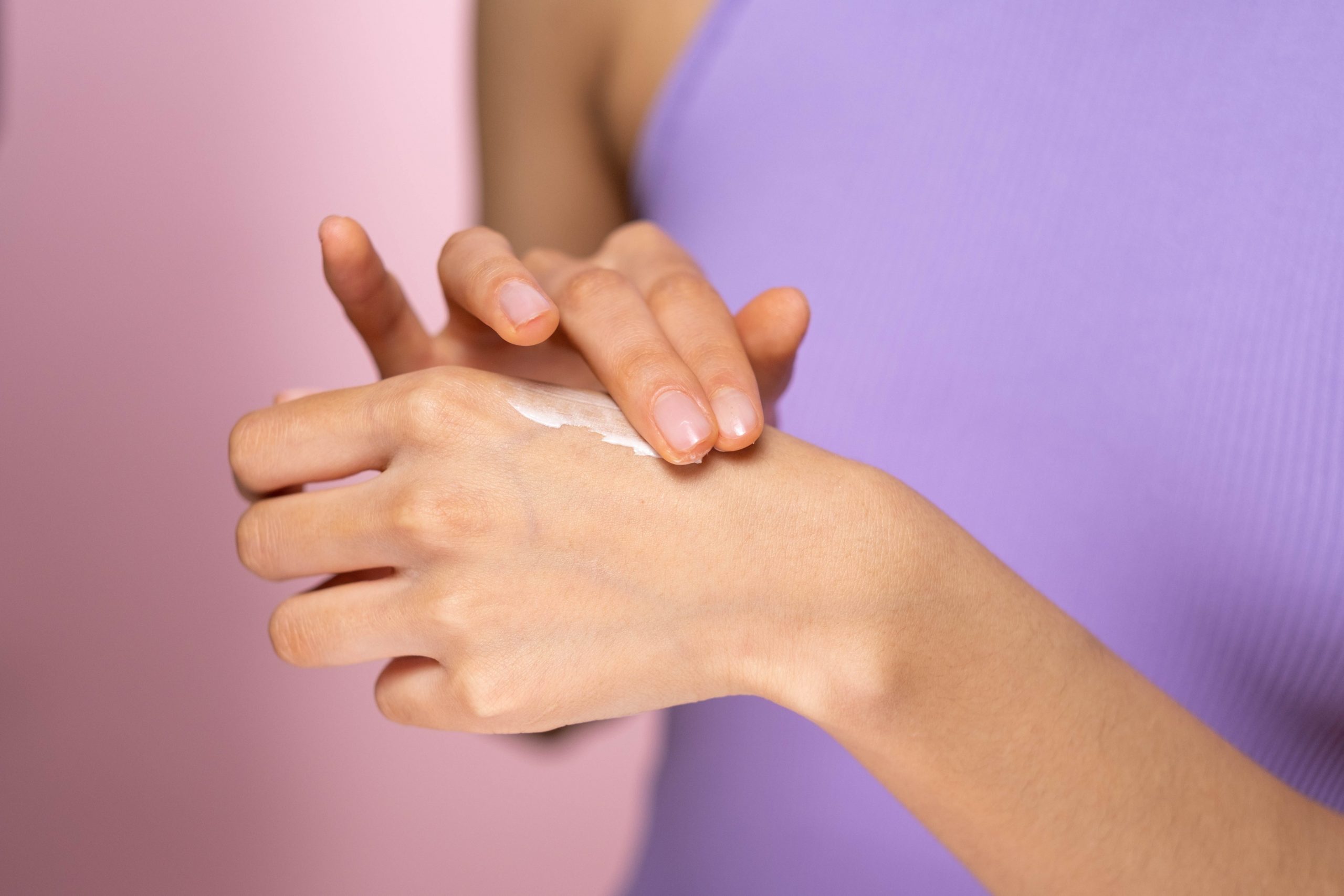October is Eczema Awareness Month. Eczema, commonly referred to as atopic dermatitis, is a common skin condition that causes inflamed, itchy patches of the skin.
Eczema is most often seen in babies and younger children, particularly appearing in patches on their faces. However, they occur in a variety of types and can affect children and teens as well as adults.
The most common type of eczema is atopic dermatitis, which is characterised as dry, itchy skin that surfaces with a red rash. Other types of eczema include:
Contact dermatitis. Contact dermatitis occurs when an individual comes into contact with irritants. An affected person can experience burning, itching, and redness upon contact, however, when the irritant is removed the inflammation subsides.
Nummular dermatitis. This type of dermatitis causes dry, round patches of skin during the winter months in particular, usually on the legs. Nummular dermatitis is more common in men than women.
Dyshidrotic dermatitis. In dyshidrotic dermatitis, the fingers, palms of the hands, and soles of the feet are affected. People with this type of eczema have itchy, scaly patches of skin that flake or become cracked, red and painful. This condition affects more women than men.
What causes eczema and who is most at risk?
The exact cause of eczema is not yet fully understood. However, the condition can be triggered by a number of external and internal factors such as an overactive immune system that tends to respond aggressively upon exposure to certain irritants.
Eczema can also occur as a result of an abnormal bodily response to certain proteins that are part of the body itself. In normal circumstances, our immune system usually ignores proteins that are part of our body and only attacks proteins that come from “invaders” such as bacteria or viruses. The body’s inability to distinguish between the two causes this inflammation.
The most common triggers of eczema flare-ups include:
- Exposure to chemicals most often found in cleaning materials and detergents that cause the skin to dry out
- Exposure to scratchy, rough material such as wool
- Exposure to synthetic fabrics
- Sweating, or rising body temperature/fever
- A sudden drop in humidity
- Food allergies,
- Stress
- Animal dander
- Upper respiratory infections
Eczema is generally more common in children and adults who also suffer from asthma or hay fever. People who have family members with eczema are also at a higher risk of developing eczema themselves.
What are the most common symptoms?
The main symptoms, as mentioned before, are itchy, dry, flakey and rough patches of the skin that are inflamed and irritated. These symptoms can flare up, subside and then reappear. We say eczema is “flaring up” when more than one of its associated symptoms appear on the skin at once.
Eczema can affect different parts of the body, but the most common spots include the arms, inner elbows, the back of the knees, or the head (the cheeks and scalp in particular). Eczema is not contagious and can become less severe with age.
Other symptoms of eczema include intense itching; red or brown/grey patches of skin; crusty patches of dried yellow coloured “ooze” (usually signifying an infection); small, raised bumps that release fluid when scratched; and/or thickened scaly skin.
Is there a treatment for eczema?
Yes, there are several treatments for the symptoms of eczema, although an absolute cure is yet to be found.
A dermatologist, allergist or primary care physician can help in identifying the correct treatment path for your unique case. In some cases, it can be helpful to combine two or more treatments.
Treatments for eczema can be medicinal in nature, antihistamines and cortisones for example can help relieve the itching.
Light therapy/ phototherapy using ultraviolet lights can also be used. Light therapy helps prevent the immune system responses that can trigger eczema. This type of treatment requires a series of sessions and can also help prevent bacterial skin infections.
Applying a cold compress or soaking in a warm bath for 15-20 minutes can help alleviate itching. In addition, certain stress-reducing lifestyle changes can also help such as breathing exercises, practicing yoga, meditation, and prioritising a good night’s sleep.
Maha El Akoum, MPH, is a public health professional currently working as Head of Content at World Innovation Summit for Health [WISH].
Follow Doha News on Twitter, Instagram, Facebook and Youtube







